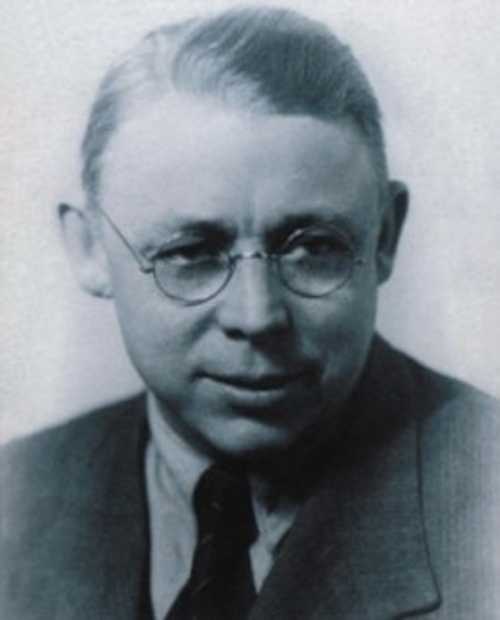
Soviet Forces
Brigadier-Commander (ComBrig) Zarubin.
Vasily Mikhailovich Zarubin, remembered by Polish officers interned in Kozielsk Special Camp as "the highest Soviet authority" there - although he was not Camp Commandant. the "ComBrig" was remembered by survivors as correct, polite - even apparently friendly. He was clearly well-educated, multi-lingual and cultured. His interviews with selected prisoners were more like friendly "purposeful conversations" rather than interrogations. He lent books from his private library to prisoners - the most popular read was Winston Churchill's "The World in Crisis". Zarubin's education and culture suggested to some prisoners that he had been associated with the Soviet Foreign Service, and that this had familiarised him with the outside world; had he, perhaps, been attached to the Soviet Embassy in Warsaw ? His influence seemed to be responsible for the generally correct treatment received by the prisoners on the part of the NKVD guards (as far as circumstances, and Soviet political priorities) allowed. When he failed to return from one of his frequent trips to Moscow, some prisoners assumed that this marked a major decision as to their fate having been made. Perhaps - even now, it is not clear whether, and to what extent, Zarubin's views might have influenced the highest Soviet authorities to liquidate their "enemies", the Polish officers interned at Kozielsk Camp, who died in early April 1940 at Katyn Wood. Actually, recent revelations make clear that, in many respects, the prisoners' observations on Zarubin were close to the mark. Born in 1894, the son of a railway worker in Moscow, Zarubin was a veteran of the Tsarist army in WW1 in which context - like so many others - he became a convert to Communism. Having served in the Red Army during the Russian Civil War, he joined the Soviet State security services. By the time the Polish officers encountered him, he was a highly-trained 20-year veteran Bolshevik spook. If the local NKVD deferred to him, this is hardly surprising; he far outranked them all. Zarubin had served as a Soviet agent under diplomatic cover in Manchuria, Finland, and Denmark, and as an "illegal" agent in Germany and in the USA. For much of his undercover career he operated as part of a "double act" with his wife, Elizaveta. As to why this Foreign Intelligence superstar was consigned to assessing the social and political leanings of Polish officers in an obscure PoW camp in late-'39/early '40 - it appears that he was denounced by NKVD chief Beria as a "Gestapo accomplice" about this time and - although he was one of the few so denounced to avoid a terminal visit to what Zhukov called "Beria's basement", he may still have been under something of a cloud at this time. After his time at Kozielsk, Zarubin spent another "diplomatic" term in China, before being despatched - on Stalin's personal orders - to the USA again, this time serving under diplomatic cover as a Third Secretary at the Soviet Embassy. In Washington, Zarubin had the job of satisfying Stalin's unbridled paranoia by reporting on any hint that the US might have thoughts of making a separate peace with Germany. At some point, he was compromised by an anonymous letter sent, apparently, by a discontented Washington operative both to Moscow and to the FBI. Both of the recipients seem to have drawn what was, for once, the appropriate conclusions. Zarubin was recalled to Moscow in August, 1944 but - perhaps surprisingly - not shot. In fact, he was promoted Major General, and appointed deputy heaad of foreign intelligence. He was retired in 1948, but remained active in training younger Soviet agents. For his services over the years, he was awarded tthe Order of Lenin (twice), the Order of the Red Banner, and the Order of the Red Star. Vasily Zarubin died in Moscow in 1974. Best regards, JR.
2772 Views
12/6/2011
